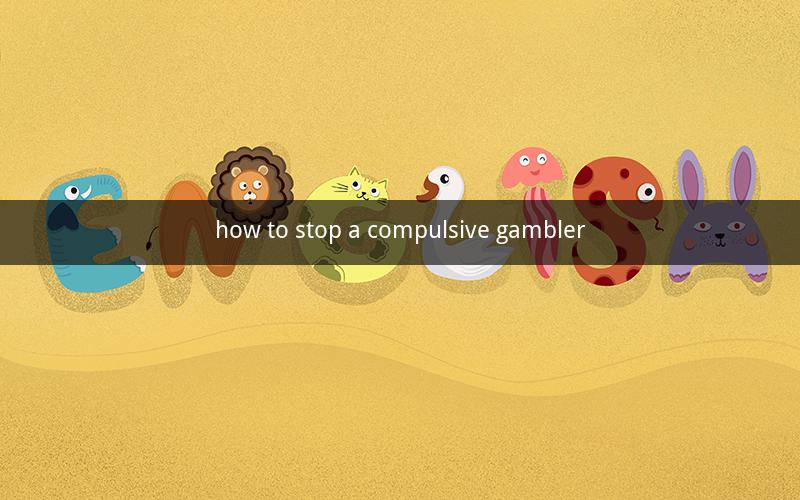
Table of Contents
1. Understanding Compulsive Gambling
2. Identifying the Signs of Compulsive Gambling
3. The Impact of Compulsive Gambling on Individuals and Families
4. Strategies for Stopping Compulsive Gambling
- Professional Help
- Support Systems
- Financial Management
- Self-Reflection and Change
5. Treatment Options for Compulsive Gamblers
- Therapy
- Support Groups
- Medication
6. The Role of Family and Friends in Recovery
7. Legal and Ethical Considerations
8. Case Studies and Success Stories
9. Preventing Compulsive Gambling
10. The Future of Compulsive Gambling Treatment
1. Understanding Compulsive Gambling
Compulsive gambling, also known as problem gambling, is an addictive behavior characterized by an inability to control the urge to gamble. This condition often leads to significant emotional, financial, and social problems. Understanding the nature of compulsive gambling is crucial in developing effective strategies to stop this behavior.
2. Identifying the Signs of Compulsive Gambling
Recognizing the signs of compulsive gambling is the first step in addressing the issue. Common indicators include:
- Preoccupation with gambling
- Needing to bet more money to achieve the desired excitement
- Loss of control over gambling behavior
- Feeling restless or irritable when attempting to stop gambling
- Continuing to gamble despite negative consequences
3. The Impact of Compulsive Gambling on Individuals and Families
Compulsive gambling can have devastating effects on individuals and their families. Financial strain, relationship problems, and legal issues are just a few of the consequences. Recognizing these impacts is essential for taking action to stop the behavior.
4. Strategies for Stopping Compulsive Gambling
Several strategies can be employed to help compulsive gamblers stop their behavior. These include:
Professional Help
- Seeking therapy from a mental health professional
- Engaging in cognitive-behavioral therapy (CBT)
- Attending gambling addiction programs
Support Systems
- Joining support groups such as Gamblers Anonymous
- Reaching out to friends and family for emotional support
Financial Management
- Setting a budget and avoiding high-risk financial decisions
- Seeking financial counseling to address gambling-related debts
Self-Reflection and Change
- Reflecting on the reasons for gambling and identifying triggers
- Developing a plan to avoid those triggers
5. Treatment Options for Compulsive Gamblers
Treatment for compulsive gambling can vary depending on the individual's needs. Common options include:
Therapy
- Individual therapy
- Couples counseling
- Family therapy
Support Groups
- Gamblers Anonymous
- SMART Recovery
Medication
- Selective serotonin reuptake inhibitors (SSRIs)
- Naltrexone
6. The Role of Family and Friends in Recovery
Family and friends play a crucial role in the recovery process. They can provide emotional support, help create a supportive environment, and encourage the individual to seek professional help.
7. Legal and Ethical Considerations
Understanding the legal and ethical implications of compulsive gambling is essential. This includes recognizing the potential for legal action and the importance of ethical decision-making in dealing with gambling-related issues.
8. Case Studies and Success Stories
Learning from case studies and success stories can provide inspiration and hope. These stories highlight the challenges faced by compulsive gamblers and the paths they took to overcome their addiction.
9. Preventing Compulsive Gambling
Preventing compulsive gambling involves raising awareness, educating individuals about the risks, and promoting responsible gambling practices.
10. The Future of Compulsive Gambling Treatment
The future of compulsive gambling treatment may include advancements in technology, such as virtual reality therapy, and increased awareness of the condition. As research continues, new treatment options and interventions may emerge.
---
Frequently Asked Questions
1. What is the difference between gambling and compulsive gambling?
- Gambling is a leisure activity, while compulsive gambling is an addictive behavior characterized by an inability to control the urge to gamble.
2. Can someone recover from compulsive gambling?
- Yes, recovery from compulsive gambling is possible with proper treatment and support.
3. Is compulsive gambling a mental illness?
- Yes, compulsive gambling is recognized as a mental health disorder by the American Psychiatric Association.
4. How can I help a loved one with a gambling addiction?
- Offer support, encourage them to seek professional help, and create a safe and supportive environment.
5. Are there any medications to treat compulsive gambling?
- Yes, some medications, such as SSRIs and naltrexone, may be prescribed to help manage compulsive gambling.
6. What is the most effective treatment for compulsive gambling?
- The most effective treatment depends on the individual's needs, but a combination of therapy, support groups, and lifestyle changes often works best.
7. Can compulsive gambling lead to legal problems?
- Yes, compulsive gambling can lead to legal issues, such as fraud or theft, due to the need to fund gambling activities.
8. How long does it take to recover from compulsive gambling?
- Recovery can vary, but many individuals experience significant improvement within a few months of seeking treatment.
9. Can compulsive gambling affect employment?
- Yes, compulsive gambling can affect employment due to financial strain, absenteeism, and job performance issues.
10. Is it possible to prevent compulsive gambling in children?
- Yes, educating children about responsible gambling and monitoring their activities can help prevent the development of gambling addiction.